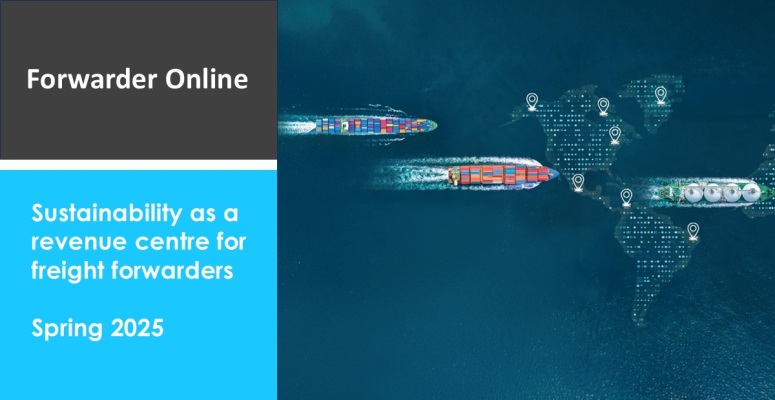
Month in Review – August 2025
Maritime
August 5: Red Sea Risk Widens as Houthis Vow to Target Carriers Tied to Israel – gCaptain
Carriers have been warned to proceed “with extreme caution” following the major widening of the Houthis’ sphere of attacks announced last week, with lines including Hapag-Lloyd, ONE, Yang Ming and CMA CGM all now in the firing line.
In a statement, the Houthis warned they would target “all ships” that belonged to any company calling at Israeli ports, including Haifa, and warning all companies to cease dealings with those ports.
Chief analyst at eeSea Destine Ozuygur said the announcement marked ‘a sea change moment’ in the Red Sea conflict, coming barely two months on from the Iran-backed militia group having appeared to be moving toward de-escalation.
“They’re threatening any ships of any company that makes active calls to Israel, regardless of whether that specific string calls Israel, so that is a huge net,” she said.
August 12: U.S. to Retaliate Against IMO Members That Back Net-Zero Emissions Plan – Yahoo Finance
The U.S. has rejected the “Net-Zero Framework” proposal by the International Maritime Organization, which is aimed at reducing global greenhouse gas emissions from the international shipping sector, and threatened measures against countries that support it.
The announcement comes ahead of a vote at the United Nations’ shipping agency to adopt the net-zero proposal in October. It also comes as the Trump administration uses tariffs as a tool to influence the behaviour of leaders of other nations, including China, India and Brazil, and as the U.S. withdraws support for regulations aimed at curbing climate change.
“The Trump Administration unequivocally rejects this proposal before the IMO and will not tolerate any action that increases costs for our citizens, energy providers, shipping companies and their customers, or tourists,” the statement said.
“Our fellow IMO members should be on notice that we will look for their support against this action and not hesitate to retaliate or explore remedies for our citizens should this endeavour fail,” it continued.
August 26: PM Singles Out Ports of Montreal and Churchill for Imminent Major New Infrastructure Investments – Maritime Magazine
Speaking alongside German Chancellor Friedrich Merz in Berlin on August 26 as he sought to bolster economic and energy ties with Europe, Prime Minister Mark Carney announced the federal government will soon be unveiling big investments in port infrastructure – specifically singling out the ports of Montreal and Churchill, Manitoba.
“Our government is in the process of unleashing half a trillion dollars of investment in energy infrastructure, port infrastructure, particularly intelligence infrastructure, as well, with AI,” Mr. Carney said.
The prime minister indicated the first of those investments will be announced “in the next two weeks.”
He evoked the upgrading of infrastructure at the Port of Montreal which is approaching the construction phase of its massive Contrecoeur container terminal project whose cost has ballooned above $1.5 billion.
He referred to the Churchill undertaking as “a new port, effectively, in Churchill, Manitoba … which would open up enormous LNG, plus other opportunities, and other East Coast ports for those critical minerals,” Mr. Carney said.
August 27: Ocean Carriers Launch ‘Aggressive Push’ for Market Share – gCaptain
The race for cargo has begun between carriers as volumes dip and fleet growth hits its new record, with the alliances eyeing different tactics.
Carriers have now suffered their tenth consecutive week of freight rate declines and, according to data company Upply, traditional peak summer season cargo levels proved “disappointing” on both Asia-Europe and transpacific routes.
Further, Alphaliner reports that the global container orderbook is on the verge of hitting a record 10-million TEU – the element of ‘fomo’ [fear of missing out] among carriers has prompted an “aggressive push for market share.”
“This is not a time for rest in shipping companies’ sales services,” said Jérôme de Ricqlès, liner shipping expert at Upply.
August 29: Global Schedule Reliability Declined in July After Six-Month Climb – Port Technology International
Global schedule reliability fell in July for the first time since January, Sea-Intelligence reports.
In July 2025, global schedule reliability dropped 2.2 points month over month to 65.2 percent, its first decline since January. However, reliability remains significantly improved on a year-over-year basis, up 13 percentage points compared with July 2024.
The average delay for late vessel arrivals also increased slightly, rising by 0.14 days to 4.68 days.
Among the top 13 carriers, Maersk led with a schedule reliability of 80.6 percent, followed by Hapag-Lloyd at 74.0 percent.
Air
August 5: Air Canada Flight Attendants Approve Strike Mandate – BNN Bloomberg
Air Canada flight attendants have voted 99.7 percent in favour of strike action if necessary, their union said on August 5, in a move that could allow them to walk off the job as early as this month.
The Canadian Union of Public Employees said in a statement it could give a 72-hour strike notice as early as August 16, after negotiators hit an impasse with the airline in July.
Such a vote is required for legal job action, but does not necessarily mean the flight attendants will go on strike.
August 11: The Airline Industry’s Dirty Secret: Clean Jet Fuel Failures – American Journal of Transportation
In 2019, Scott Kirby, the chief executive of United Airlines, hailed its new contract with green jet fuel producer World Energy as an example for the aviation industry to follow in its drive to cut emissions.
Six years later, that collaboration is dead.
Boston-based World Energy was one of the first companies in the world to produce commercial quantities of sustainable aviation fuel (SAF), a type of renewable fuel made from sources such as used cooking oil, agricultural residues and other waste.
Its Paramount refinery near downtown Los Angeles had been a rare success story, supplying millions of gallons of SAF a year to airlines such as United Airlines and fellow U.S. carrier JetBlue Airways. The plant, which began operations in 2016, was central to the carriers’ pledges to help the airline industry switch to a blend of 10% SAF by the end of this decade.
But the refinery quietly ceased operations in April. And World Energy’s plans for a second plant in Houston have stalled amid a lack of commitment from the industry, according to Chief Executive Gene Gebolys.
“Some airlines were engaged in a pretty disingenuous effort to put out press releases” overstating their commitment to SAF projects, Gebolys said, without naming any companies. “People sometimes said too much in the past and did too little.”
August 13: Air Canada Flight Attendants Intend to Strike Starting August 16, Union Says – CBC News
The union representing Air Canada’s flight attendants has signalled that its members intend to go on strike starting on August 16.
The Canadian Union of Public Employees (CUPE) gave the carrier a requisite 72-hour notice after the two sides reached an “impasse” in negotiations. The earliest their more than 10,000 workers can walk off the job is on August 16 at 12:58 am ET.
CUPE representatives say that, in response to their strike action, Air Canada has issued a notice of lockout starting at 1:30 am ET on the same day.
August 17: Air Canada Union Says Flight Attendants Will Continue Strike, Defy Government – CTV News
Air Canada flight attendants said on August 17 they will remain on strike and spurn a government return-to-work order they called unconstitutional.
The Canadian Union of Public Employees said in a statement that members would remain on strike and invited Air Canada back to the table to “negotiate a fair deal.”
On August 16, the Canadian government moved to end the strike by more than 10,000 flight attendants.
The Canadian Industrial Relations Board agreed to a government request to order binding arbitration and end the strike to break their contract impasse, an action Air Canada had sought but unionized flight attendants fiercely opposed.
The Canada Labour Code gives the government the power to ask the CIRB to impose binding arbitration in the interest of protecting the economy.
August 19: Air Canada, Flight Attendants Reach Tentative Deal to End Strike – CBC News
A tentative agreement has been reached to end the contract dispute between Air Canada and its flight attendants, both the airline and the Canadian Union of Public Employees (CUPE) said on August 19.
CUPE, which represents more than 10,000 Air Canada flight attendants, said that after nine hours of talks with the assistance of the chief mediator appointed by the federal government, the deal struck will be presented to its membership, who will have an opportunity to ratify it.
Among the sticking points for the union was the issue of pay for work performed while planes are on the ground. While not elaborating on the issue, the union said in a statement that “unpaid work is over.”
CUPE advised its members to “fully co-operate with resumption of operations.”
August 30: Air Freight Alert: New EU Aviation Security Regulation Effective September 1 – FIATA news posting
From September 1, new European Union (EU) requirements will enter into force under Implementing Regulation (EU) 2025/920. These requirements apply to Regulated Agents (RAs), which are entities formally approved by the competent EU authority to apply security controls to cargo.
This news item from FIATA provides information on key changes, what the changes mean for freight forwarders and recommended actions.
Rail
August 4: CN Expanding Capacity at Zanardi Rapids Bridge to Boost Supply Chain Resiliency at Port of Prince Rupert – Maritime Magazine
To unlock the Port of Prince Rupert’s full potential, CN has outlined an investment strategy focused on long-term rail capacity. The Zanardi Rapids Bridge Project stands at the heart of that strategy.
The 1,600-ft Zanardi Rapids Bridge will be a key part of CN’s plan to enhance the port’s rail infrastructure, in line with the major port projects underway.
The Zanardi Rapids presents a natural bottleneck for rail capacity. The new bridge is designed to expand capacity along this critical link, extending several miles of track in both directions and connecting the new three-track bridge to meet growing demand.
The existing bridge can accommodate up to 24 trains per day, but demand is expected to grow within the next decade. The Zanardi Bridge Project will not only expand capacity but also future-proof the entire corridor for decades ahead, CN stated.
August 5: CN Adding 17 Miles of Second Main to Support Growth West of Edmonton – TrainsPRO
Canadian National is building 17 miles of double track on its busy Edson Subdivision west of Edmonton, the stretch of main line that leads to the railway’s routes to Vancouver and Prince Rupert.
“The double‑tracking project is expected to increase capacity on the Edson Subdivision by 25%, allowing for more efficient movement of rail traffic through this key link between the Prairies and the West Coast of Canada,” CN said in its 2025-26 Grain Plan, released in early August.
The Edson Sub spans the 234.2 miles between Edmonton and Jasper, Alberta
The new sections of second main are being built between Edson and Hinton, Alberta. CN will add a 12-mile stretch of second main track between Galloway and Hargwen. Further west, CN will add 5 miles of second main, as well as a new double crossover, between Dalehurst and Pedley. These sections are the Edson Sub’s most limiting single-track bottlenecks, CN says.
Trucking
August 4: Freight Brokers Report Huge Spike in Phone and Email Scams – Supply Chain 24/7
Freight fraud is getting smarter – and more aggressive. In Q2 2025, nearly half a million fake emails and more than 42,000 scam phone calls were flagged in the freight sector, according to a new report from Highway.
The data shows a 41% increase in fraudulent emails and a 23% rise in identity fraud compared with the first quarter. Scammers are working across multiple channels, hijacking inboxes, spoofing phone numbers, and even acquiring carrier operating authorities (MC numbers) to look legitimate.
“Freight fraud isn’t just opportunistic anymore; it’s coordinated and strategic,” said Michael Grace, Vice President of Customer Risk Management at Highway. “Attackers are gaining trust, mimicking legitimate behaviour, and infiltrating networks through identity blind spots brokers and carriers don’t even realize exist.”
August 6: More Than 1,200 Truck Drivers Fail English-Language Tests Since Enforcement in U.S. – Transport Topics
More than 1,200 truckers have been removed from U.S. highways since late June for being unable to communicate adequately in English or read English-language highway signs, Federal Motor Carrier Safety Administration data revealed.
U.S.-domiciled commercial motor vehicles accounted for 99% of the violations issued, while Canadian and Mexican domiciled companies each represented about a half percentage point.
August 7: Ontario Rolls Out Autonomous Truck Pilot Program – Today’s Trucking
Ontario has launched a pilot program for the testing of specific truck configurations that weigh more than 4,500 kg and are equipped with automated driving systems that meet the SAE International standard for Level 3, 4 or 5 autonomy.
The 10-year pilot program runs from August 1, 2025 to August 1, 2035, the provincial government revealed on its website. The program will allow approved participants to safely test automated commercial motor vehicle (ACMV) technologies on Ontario roads to evaluate their performance, assess opportunities to improve road safety and support the trucking sector.
The pilot has two streams. A driver-supervised stream, where a driver will be present in the driver’s seat and be prepared to engage and take control of the vehicle as necessary.
In the driverless stream, no driver is present in the vehicle’s driver seat. An assistant, located either inside the vehicle or at a different location in Ontario, must be ready to provide oversight of the ACMV.
August 13: Ontario Trucking Firms Tied to Tariff-Hit Industries May Be Eligible for Financing Program – Today’s Trucking
Ontario’s new Protect Ontario Financing Program may be open to some trucking companies whose operations are closely tied to the steel, aluminum or automotive sectors impacted by U.S. section 232 tariffs.
The program will provide up to $1 billion in liquidity support in the form of loans to Ontario-based businesses facing tariff-related challenges.
Carriers moving raw steel, aluminum and autos or auto parts could qualify, provided they can demonstrate that tariff impacts have directly affected their business.
August 14: Truck Backups as Long as 20 Km at Sarnia’s Blue Water Bridge – Today’s Trucking
Various causes are being blamed for chronic truck backups through city streets in Sarnia over the past several months, with police issuing a cascade of violations.
Local police have laid almost 200 Highway Traffic Act violations so far this year, up 600% from the first seven months of 2024. That’s for sign disobedience. They’ve also laid almost 150 charges for truckers being on non-designated truck routes or lacking permits, a local bylaw offence. The first violation carries a $110 fine and the second $490.
The trucks have descended on city streets to skirt kilometres-long backups on Hwy. 402 westbound heading to the Blue Water Bridge and the U.S. It’s uncertain what’s causing the backups, but officials suggest it could be tighter border enforcement on the American side as well as a toll increase for trucks at the Ambassador Bridge between Windsor and Detroit, 108 km away. And there has been construction along Hwy. 402 itself, reducing the number of lanes.
Sarnia Mayor Mike Bradley said this past weekend trucks were backed up as far as 20 km along Hwy. 402. “So, what will happen is some of the truckers will go off onto the streets to try and get around it,” he said.
August 21: ‘Thermonuclear’ Verdicts on the Rise in the U.S., Report Finds – Transport Topics
The trucking industry remained a top legal target last year as multimillion-dollar verdicts against U.S. companies expanded into “thermonuclear” territory of at least $100 million, a new report said.
The “Corporate Verdicts Go Thermonuclear” study from Marathon Strategies found that the trucking and automotive industries faced a combined 15 multimillion-dollar verdicts last year totaling jury awards of more than $1.4 billion.
“In 2024, 135 lawsuits against a corporate defendant resulted in a nuclear verdict – those that surpass $10 million – the largest number of such cases Marathon has identified in a single year since 2009, and a 52% increase over 2023,” said the company. “The total sum of these verdicts reached an eye-popping $31.3 billion, a 116% increase over 2023.”
August 22: U.S. Suspends Issuing of Visas to Foreign Truck Drivers – Today’s Trucking
The U.S. continues to crack down on underqualified foreign truck drivers, with U.S. Secretary of State Marco Rubio taking to social media platform X to make the announcement.
“Effective immediately we are pausing all issuance of worker visas for commercial truck drivers. The increasing number of foreign drivers operating large tractor-trailer trucks on U.S. roads is endangering American lives and undercutting the livelihoods of American truckers,” he posted.
While Canadian truck drivers do not require visas to operate commercial motor vehicles to and from the U.S., some foreign drivers – including those based in Canada and Mexico – do. The Private Motor Truck Council of Canada reached out to the U.S. consulate for clarification on the potential impact on Canadian-domiciled drivers.
“We have confirmed this order only effects E and H visas. This order does not affect B1/B2 visas, which most third-country-national drivers in Canada use to enter the United States, so the order should not affect them,” the consulate advised.
“Relatedly though, as part of their visa interview they must display a strong level of English language skills, or they can be refused the visa.”
August 25: U.S. Visa Suspensions a Warning Canadian Trucking Must Heed: CTA – Today’s Trucking
The Canadian Trucking Alliance (CTA) is warning that, while the U.S. suspension on new visas for foreign truck drivers won’t have much, if any, impact on Canadian drivers, it should be seen as a warning to industry to clean up its act.
U.S. Secretary of State Marco Rubio posted on X last week that the U.S. is immediately pausing the issuance of all visas to truck drivers who require them to operate in the U.S.
The visas being suspended don’t apply to drivers in Canada, but in a subsequent release, CTA said “Canada must view these events as a wakeup call to clean up the issues within our system or risk potentially facing similar restrictions in the future.”
CTA pointed to a June 2025 CBC investigation that suggested “bribes, forged documents … rigged testing and ‘buying’ of licenses” is not uncommon.
The alliance says it has provided government with a step-by-step plan to improve truck safety and oversight, which must be enacted right away “to reverse the escalating trend of deteriorating truck safety and lack of truck driver professionalism on Canadian roadways.”
The CTA is also calling on the feds to close immigration loopholes that allow Canadian carriers to exploit temporary foreign worker programs.
CIFFA Advocacy, Communications, Activities
August 14: CIFFA Writes to Minister of Jobs and Families Seeking Resolution to Air Canada Labour Conflict
CIFFA sent a letter on August 14 to Patty Hajdu, Canada’s Minister of Jobs and Families, to express concern about “the escalating labour situation playing out between Air Canada and CUPE 4091,” the union representing Air Canada’s flight attendants.
CIFFA said an immediate threat to perishable and time-sensitive goods and further harm to Canada’s reputation as a trading partner – particularly at this “pivotal moment in Canada’s history” – would be the consequences of a work stoppage at the airline.
The association urged the minister ‘to use all available tools to facilitate an immediate resolution” to avert a work stoppage. “Our country simply cannot afford another labour disruption in this crucial sector at this time.”
August 20: CIFFA Submission to Free Trade and Labour Mobility Act in Canada Consultations
On August 20, CIFFA made a submission in support of the development of regulations under the Free Trade and Labour Mobility in Canada Act.
Having the federal government engaging with provinces and territories to achieve mutual recognition of regulations, policies and processes is essential towards achieving stronger trade within Canada.
August 28: CIFFA Participates in Department of Finance Consultations for 2026 Federal Budget
CIFFA has made a submission to the Department of Finance consultations for the 2026 federal budget.
Earlier this year, CIFFA Corp issued correspondence to Prime Minister Carney as part of our effort to collaborate with elected officials towards strengthening Canada’s supply chains and advancing our shared economic goals. We reiterate the need for implementation of these measures to improve Canada’s supply chain, along with the necessary strategic overview required for successful implementation.
In the Finance submission, we call attention to three key areas that will require strong leadership from the federal government.



